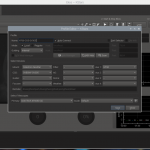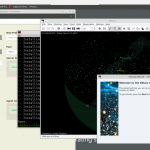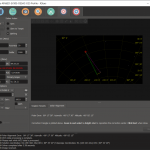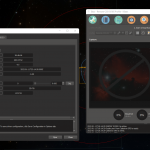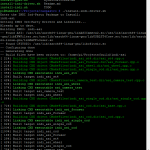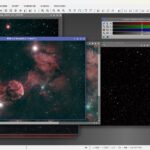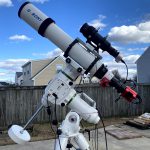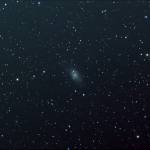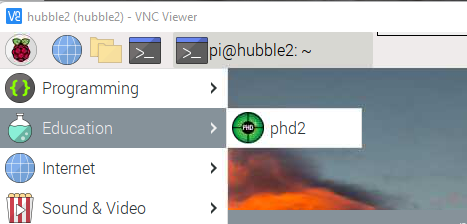
It has been cloudy, so I have been messing the with Raspberry Pi. I have a 64GB SD Card that I loaded up with the 64-bit Raspberry Pi OS. No real need for 64-bit other than future proofing. I read somewhere that the next major version of KStars would likely be 64-bit only, and I am guessing INDI will get there eventually. The 64-bit OS will definitely provided some advantages on the 8GB Raspberry Pi.
I also want to give the integration between Ekos and PHD2 a try to see if there is any advantage to guiding outside of Ekos. Ekos has an internal guider which works pretty well but I just want to do some testing. Having a different application may just add some complexity, but it is possible since PHD2 is a purpose built guiding application MAYBE it will provide some advantages over the internal Ekos guiding.
There are a couple different ways to run PHD2. I plan to try running PHD2 on the Raspberry Pi with the INDI Server. PHD2 will connect to the guide camera and mount via INDI. I’ll use PHD2 for guiding which is configured in the Ekos profile.
I rebuilt INDI and the 3rd Party drivers from source just as I did here. I had some issues the ASI drivers to compile, and to be honest I don’t know exactly how I worked through it. I THINK I had to rebuild and install indi-core AFTER making/installing the libasi libraries. I think… but I am not exactly sure. Anyway after hacking away at it a bit I was able to get indi-core and the indi-3rdparty libraries and drivers built and installed. Drivers indi-asi, indi-qhy, indi-gpsd, indi-eqmod, anre all built and installed. Installed indiwebmanager and all is right with the world.
Now to install PHD2 on the Raspberry Pi. The full instructions for building and installing PHD2 on the Raspberry Pi are here but I’ll walk through the basic steps:
First install the dependencies PHD2 (some of these were already installed – apt-get will just skip over those):
sudo apt-get install build-essential git cmake pkg-config libwxgtk3.0-gtk3-dev \
wx-common wx3.0-i18n libindi-dev libnova-dev gettext zlib1g-dev libx11-dev \
libcurl4-gnutls-dev
Then grab PHD2 from github and build it.
git clone https://github.com/OpenPHDGuiding/phd2.git
cd phd2
mkdir -p tmp
cd tmp
cmake ..
make -j2
sudo make install
Once PHD2 is installed on the Raspberry Pi I can VNC to the Raspberry Pi and launch PHD2 from the Applications Menu.

Raspberry Pi 64-bit installed, applied some of the optimization and tweaks, INDI and the drivers installed, gpsd configured, and PHD2 installed… now to wait for a clear sky to test out using the Ekos interface with PHD2 for guiding.
While trying to resolve some dependencies I stumbled upon this git repo https://gitea.nouspiro.space/nou/astro-soft-build/. Very helpful, especially the dependencies list.

